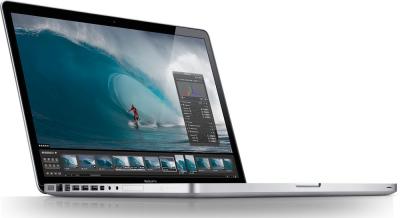Apple To Drop Intel Chips From Macbooks – Report

Intel processors will reportedly no longer feature in Macs from 2020 as Apple plots inhouse CPUs
Apple will reportedly stop using Intel processors in its Mac computers, and instead utilise its own inhouse central processing units (CPUs).
The plan, as outlined by Bloomberg, which cited people familiar with the matter, will mean that from 2020, Apple Mac should ship with Apple processors.
This is not the first time that these rumours have emerged. In February 2017 for example, Bloomberg had reported that Apple was developing an ARM-based in-house processor for its Macbook range.
![]()
Apple processors
That 2017 report came soon after influential US magazine Consumer Reports in later 2016 failed to recommend the new MacBook Pro due to significant variations in battery life. Apple later claimed to have fixed the Macbook battery life problem.
But now Bloomberg is again reporting that Apple working on its own processor in a project code-named Kalamata, and it said the move would be a “major blow” to Intel.
Indeed, Intel shares dropped more than 9 percent on the news.
The Kalamata project is reportedly still in the early developmental stages, but comes as part of a larger strategy to make all of Apple’s devices – including Macs, iPhones, and iPads – work more similarly and seamlessly together, Bloomberg quoted its sources as saying.
Essentially, Apple’s thinking is that by using its own chips, it would be able to more tightly integrate new hardware and software, potentially resulting in systems with better battery life.
The project has apparently already been approved by Apple executives, but Apple could still change its mind.
Intel told Bloomberg, “We don’t comment on speculation about our customers.”
ARM focus
Apple has been using Intel chips ever since 2005, when it stopped using chips designed by IBM and Motorola.
And it should be noted that Apple’s development of its own chip is not a new phenomenon. Apple for example already uses its own chip (called the T1) in the Touch Bar equipped Macbook Pro that launched in October 2016.
And Apple has not used Intel chips in its other product lines for many years.
The company has been designing its own iPhone processors since the release of the iPhone 4 in 2010 and has steadily been ramping up its chip design efforts.
Currently, all iPhones, iPads, Apple Watches, and Apple TVs use processors designed by Apple and based on technology from ARM Holdings.
For Intel the news (if true) will certainly have an impact, as Bloomberg supply chain analysis estimates that Apple provides Intel with about 5 percent of its annual revenue.
For Apple, the Macbook is a minor, but still important, product line (its principle money maker of course is the iPhone). Last year Apple sold 19.2 million Macbooks, which accounted for 11 percent of Apple’s $229.2bn (£163bn) revenue for fiscal 2017.
Quiz: How well do you know Apple?